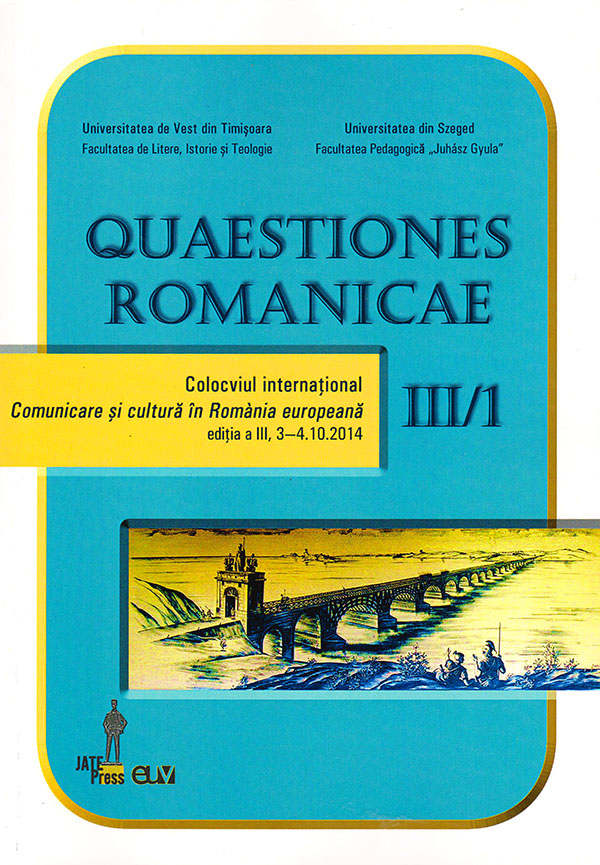Podemos y debemos: expresiones modales recurrentes en los discursos de investidura de los presidentes de gobierno españoles (1979-2011)
Abstract: (We can and we must – Iterative Modal Expressions in the Investiture Debate of Felipe González and José Luis Rodríguez Zapatero). The Spanish prime ministers’ inaugural addresses contain, as expected, promises, commitments, governmental programmes projected in front of the public as possible worlds under the leadership of the speaker, who claims the Parliament members’ trust. In those addresses delivered prior to the inauguration of the Spanish prime ministers between 1979 and 2011, one can notice a certain repetition of modal structures by speakers belonging to the same party (PP - People’s Party and PSOE - Spanish Socialist Workers’ Party), as well as by those with divergent political orientations. One of those iterative structures is podemos y debemos, pronounced by Leopoldo Calvo-Sotelo from UCD (The Union of the Democratic Center) in 1981 and reused during the following years by PSOE’s leaders: Felipe González and José Luis Rodríguez Zapatero. This structure is an association between the verb poder, which belongs to the dynamic modality (that refers to the mental and physical capacity, as well as the circumstances, as neutral conditions that can not be controlled by the human being, but can affect an action and make it possible or not), but which can be also interpreted as an epistemic or a deontic, and the deontic verb deber, that points to the obligatory nature of the prescribed action. This responsibility is only apparently undertaken by the party, but it is shared in a more or less obvious way with the citizens, as the verbs in the first person, plural suggest. This article intends to comment the modal signification of the mentioned verbs and the ambiguities regarding the meaning of the verb poder and the referent of the first person, plural.
Keywords: deontic, epistemic, dynamic, modal, political speech.
Resumen: Los discursos previos a la investidura de los presidentes de gobierno español reúnen, como es de esperar, promesas, compromisos, programas gubernamentales proyectados delante del público como mundos posibles bajo el liderazgo del orador que solicita la confianza de los miembros del Parlamento. En los discursos previos a la investidura de los presidentes de gobierno españoles entre 1979 y 2011 se observa cierta repetitividad de algunas estructuras modales, tanto en cuanto a los oradores que pertenecen al mismo partido político (PP y PSOE) como a los de orientaciones políticas diferentes. Una de las estructuras iterativas es podemos y debemos, pronunciada por Leopoldo Calvo-Sotelo de UCD en 1981 y retomada en los años siguientes por los líderes del PSOE: Felipe González y José Luis Rodríguez Zapatero. La estructura representa una asociación entre el verbo poder, perteneciente a la pseudo-modalidad dinámica (que se refiere a la capacidad física o mental, pero también a las circunstancias - condiciones neutras que no pueden ser controladas por el ser humano - que hacen posible o no una acción), pero que se puede interpretar también como epistémico o deóntico, y el verbo deóntico debemos, que apunta a la obligatoriedad de la acción prescrita. Esta responsabilidad es asumida aparentemente por el partido, pero es compartida de modo más o menos evidente con los ciudadanos, según sugieren los verbos en primera persona plural. El artículo se propone comentar el significado modal de los verbos mencionados y las ambigüedades en cuanto al sentido del verbo poder y al referente de la primera persona plural.
Palabras clave: epistémico, deóntico, dinámico, modal, discurso político.
